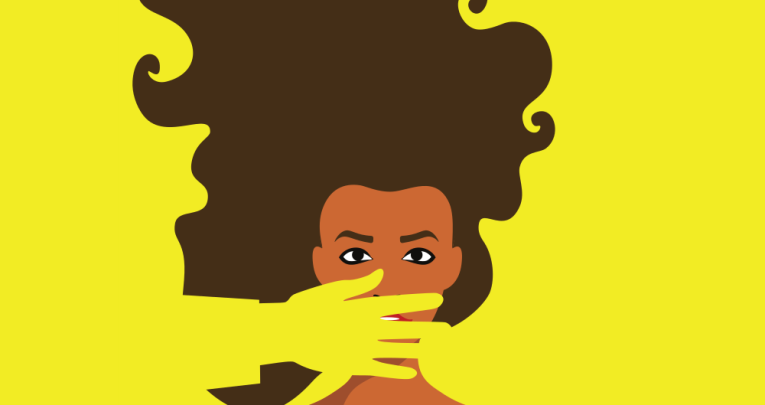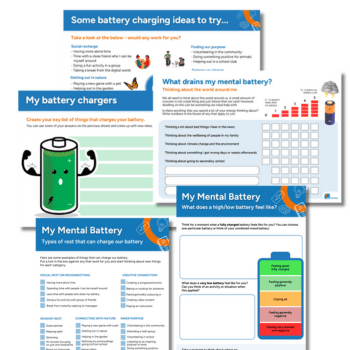Sexism online – What schools need to know about internet groups promoting extreme misogyny

Writer and activist Laura Bates tells Callum Fauser why schools need to be cognisant of the risks posed to students by online groups promoting an extreme form of misogyny…

- by Callum Fauser
- Editor of Teach Secondary magazine

I often hear from young women who have been told by a teacher ‘Boys will be boys’; ‘He just likes you’; ‘Take it as a compliment’; or ‘What were you wearing?’
In Laura Bates’ recently published book, Men Who Hate Women, there’s a passage that ought to make the blood of school staff run cold:
“When I visit schools, extraordinary though it sounds, I frequently hear young people say that ‘rape is a compliment really’ or ‘crying is part of foreplay’.
At one school, at which they had had a rape case involving a 14-year-old boy, a teacher asked: ‘Why didn’t you stop when she was crying?’ The boy looked back at her, bewildered, and said: ‘Because it’s normal for girls to cry during sex.’”
Subtitled ‘From Incels to Pickup Artists, The Truth About Extreme Misogyny and How It Affects Us All’, the book looks at how groupings of men and male adolescents in the murkier quarters of the internet have fostered a strain of modern misogyny that’s characterised by deliberate provocation, violent language and a domineering attitude towards sexual relations, and which is increasingly shaping the views of men and boys in their everyday, offline lives.
Specific preconceptions
It’s a worldview which Bates, a journalist, feminist writer and campaigner, has explored for some time. In 2012 she began the ‘Everyday Sexism’ project – a website (everydaysexism.com) at which women and girls could submit written accounts of their first-hand experiences with sexism and read accounts left by others.
An enormous number of entries were submitted in the years that followed, some of which were compiled in her 2014 book Everyday Sexism, and the site continues to receive entries today.
The large volume of Everyday Sexism responses left by teenage girls subsequently prompted Bates to become a regular speaker at schools nationwide.
Those experiences form the basis of a chapter in the book headed ‘Men who don’t know that they hate women,’ in which Bates recounts her growing realisation that the sexism she was attempting to discuss with students was evolving into something more insidious and more organised.
At some point within the last several years, Bates recalls, “I noticed a shift in the responses I was seeing in schools, particularly from teenage boys who seemed to have these specific preconceptions around feminism. Much of what I heard I’d describe as conspiracy theories, citing false rape accusations and men being the real victims of society, but it really started to concern me when I’d hear the same arguments repeated almost verbatim by students at different schools around the country, often with the same false statistics used to back up their claims.”
Defining the ‘manosphere’
Upon closer examination, Bates saw some distinct similarities between what she was hearing from teenage schoolboys and the arguments propounded by a number of extremist groups she had come into contact with online – encounters that would often involve a regular stream of offensive messages and threats as a result of her work with the Everyday Sexism project and broader activism.
This misogynist messaging wasn’t necessarily reaching the boys in question via direct contact, but through a range of intermediary spaces such as bodybuilding forums, gaming websites, viral memes and YouTube videos.
The term Bates uses throughout the book to describe the wellspring of this misogynist mindset is ‘the manosphere’.
When asked to define it, she concedes that, “It’s quite an inexact, frustrating term, that underplays the severity of what we’re talking about, but it’s typically used to describe a collection of universally male-dominated online and offline communities characterised by extreme misogynistic sentiment.
‘Those communities can include incels [‘involuntary celibate’], pickup artists, and men’s rights activists, but there’s also a great degree of overlap with other extreme online communities, such as white supremacists, white nationalists and the alt right.
“These groups are distinct, but their relationships with one another are complex. There will often be resistance and conflict between them, but a lot of the underlying philosophy is shared, down to the distinct language they use. Some will rail against the idea that they should be tarred with the same brush, whilst simultaneously suggesting that all women are essentially evil and identical.”
Under the radar
In the book, Bates describes a form of online radicalisation that puts teenage boys under intense pressure to dehumanise their female peers and see them not as human beings with their own agency and desires, but as a homogenous group who pose a dangerous threat.
“These communities are so effective at radicalisation that it becomes very difficult to refute the arguments once boys have taken them on board,” she explains.
“Implicit in the process is a warning that the rest of the world doesn’t know these truths. Attempts to counter what they’ve heard online with real world facts are often unsuccessful, because they see teenage girls as part of this ‘gynocracy’ that’s somehow stacked against them.”
As Bates sees it, extreme misogyny is taking hold in a growing number of schools and causing enormous harm to students’ interpersonal relationships, but in a way that frequently flies under the radar of teachers, leaders and policymakers.
“The Prevent Strategy calls on teachers to be vigilant for signs of radicalisation and extremism in relation to other ideologies, but extreme misogyny barely registers. Schools can’t pick up on it if they don’t even know it’s there. Organisations such as the Good Lad Initiative (goodladinitiative.com) provide training and support aimed at making teachers more aware of these groups and how they operate, which is a hugely important first step in tackling the problem.”
‘Boys will be boys’
I ask Bates if, in the course of her own efforts at drawing attention to the issue, she’s ever encountered pushback from teachers or leaders. Many might argue that the hyperconnected online manosphere might be a modern phenomenon, but that the pubescent suspicion, frustration, bafflement and attraction boys and girls can feel for each other is as old as human biology itself.
“The ‘boys will be boys’ issue is something I’ve regularly heard reported by girls at some schools,” Bates says.
“I often hear from young women who, when reporting sexual harassment at school to a teacher, will be variously told ‘Boys will be boys’; ‘He just likes you’; ‘Take it as a compliment’; or ‘What were you wearing?’ Variations on those attitudes definitely exist among teachers – as they do in any profession – and that’s problematic.”
Beyond that, Bates’ experiences of resistance from school staff have tended to concern the perceived radicalism of her message: “It’s seen as ‘feminism gone too far’, to the point of being controversial. Some schools are reluctant to risk upsetting parents by being seen as attacking boys.”
If she were to thus envisage a world in which extreme misogyny and its attendant issues had been eradicated, what would that look like in practice? What would be her idealised picture of relations between girls and boys at school?
“We’d see relationships between individuals and behaviours that weren’t dictated by gender, because at the at the moment, boys’ and girls’ experiences of school are radically different. I’d like to see that change,” Bates concludes.
“It would be extraordinarily freeing, for both girls and boys, to be released from those gender stereotypes that are so suffocating. It would enable them to explore a huge, much wider range of possibilities in terms of self-determination and self-expression, and girls would feel freer to behave in schools without feeling that they’re constantly at risk of judgement.”
The impact of street harassment
A team at Nottingham Trent University has produced a set of teaching resources to accompany a research project examining the impact of street harassment on women and girls.
Titled ‘Changing Minds: The Real Impact of Street Harassment’ the resources include discussion topics and activities linked to the KS3-KS5 PSHE programme of study, background information concerning the group’s research and a short comic based on real life experiences of street harassment as recounted by men and women in the Nottingham area.
For more details, read the report here.
Men Who Hate Women: From Incels to Pickup Artists, The Truth About Extreme Misogyny and How It Affects Us All is available now, published by Simon & Schuster.










